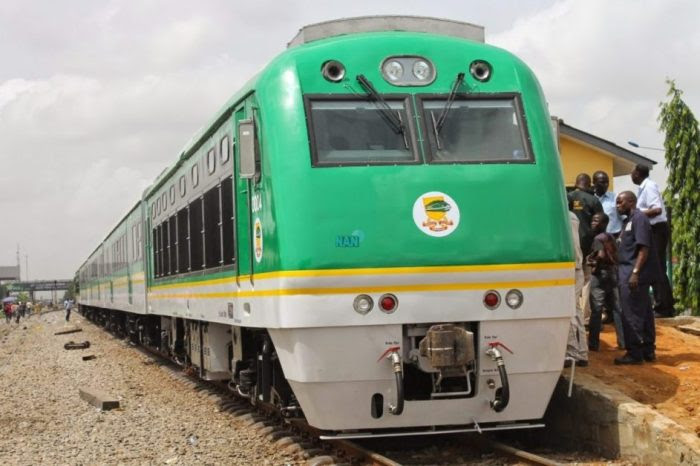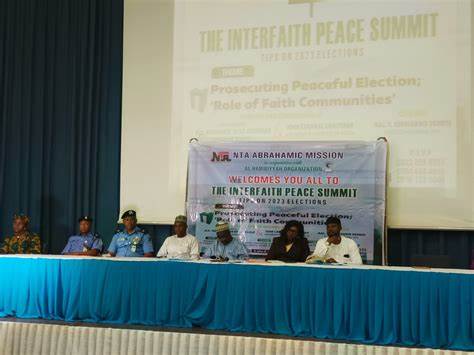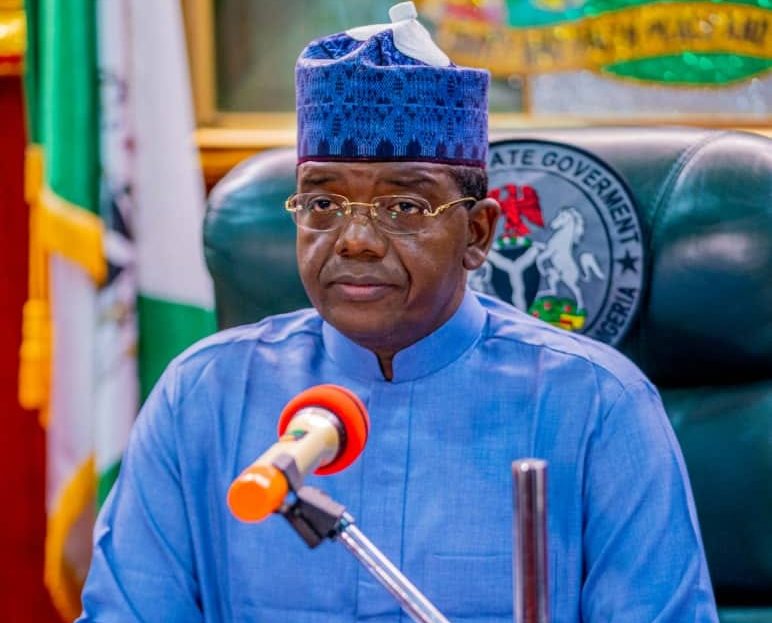Let’s adopt 6-year single term – Robert Audu
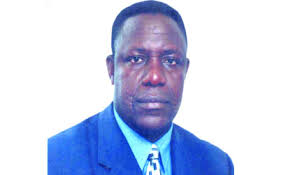
Chief Robert Audu is a former permanent secretary who served in several ministries, including being the Permanent Secretary (Political) in The Presidency. He was a member of the 2005 and 2014 political conferences. In this interview Chief Audu argues in support of restructuring in aspects of control of mineral resources, police, prisons, term of office for the executive arm of government, etc. Below are excerpts:
As a former permanent secretary in several ministries, what, to you, does restructuring the country mean?
The restructuring of this country formally began in 1914 after the amalgamation of the southern and northern protectorate by the British colonial masters. Time has, therefore, come for us to take a look at the arrangement that the British put in place over this long period – over 100 years. What is restructuring? If you review an existing process and introduce new things to it, you have already restructured that process. For instance, worldwide it is believed that every 10 years census should be conducted to look at the population and adjust the systems in line with new findings. That’s restructuring. Restructuring, therefore, is an effort to take a look at governance and its institutions to see how they could be re-examined in line with current realities.
However, from the discussions across the country, the arguments are around power devolution. For instance, there is the consensus that the police have been overwhelmed, the command structure is unwieldy and apparently they are not delivering the goods. In other parts of the world, there is county police, like local government police, or campus police (as you find in America), who are controlled and regulated by the higher police authorities. I schooled in Michigan and that was what happened. But in Nigeria, people are afraid to let go. We also have our legal system states have their judiciary, but who is the prosecutor? It’s the police who is not under the command of the state. Again, the prisons are under the federal government, not the states. If we have state police, they will prosecute cases based on the state’s court system. Then, the state should have its own prison so that some states have their own reformatory facilities. Instead of long term prisons there is a reformatory facility they are trained and when they are reform they return to the society.
Again, when you talk of mineral resources, we have many in Kogi State. But mineral resources is a federal subject. If we review the exclusive list, pull out some items and put on the concurrent list it will be better. I’ve had to ask the senator representing my community to put pressure on government. We have oil four locations in Igala land. One is being exploited by a company, Orient Petroleum, from the South East. They got the mining right from the Federal Government, but the beacon Shell company put in the 1950s in Alade, Okpo… If you go to Okpo you find gasoline coming out of the ground; the colour is blue. Instead of going to examine and explore the one in Igala land, they went to Borno, a Boko Haram-infested territory, and came under attack. What happened was that Jonathan was not firm and declared Anambra an oil state. But the oil is largely in Kogi. We’ll support the kind of structuring that would grant us the access to participate in the natural resources in our land. So, mineral resources should be on the concurrent list.
There is the suspicion that the South-South wants to secede from the country and use restructuring as the strategy. What’s your take?
That’s totally a wrong hypothesis. I had this experience when we were planning for the 2005 Political Reform Conference. The South-South was coming in and asking for 50 per cent derivation. They threatened to quit the conference if they didn’t give them. With Obasanjo we did some brainstorming and anticipated they would walk out. We said we were trying to review the 1999 Constitution and that if the South South wanted 50 per cent derivation, it was up to them to convince Nigerians at the conference to agree with them. But if they walked out, then the status quo would be maintained at 13 per cent derivation. When this approach was given to Obasanjo, he laughed. Incidentally, the South-South walked out in protest and the political reform conference ended abruptly. So the 13 per cent has not changed up to now. At the last Jonathan conference, they insisted. I asked the Revenue Mobilisation and Fiscal Commission to take a typical year, look at all the revenue and how much did each state get, and begin to increase by 13% how much would each state get. At the time that the calculation was being done and the increase was nearing 20% some states were not going to get anything from the federation account! Even the South South that made the loudest noise only one state held its head above waters. So how would the South-East survive? Also, look out the South-East asking for equal number of states as the North. But where is the land? As we’re speaking, there is no state capital of the South-East that is 150 kilometres apart. From Enugu to Abakiliki is 78 kilometres; Enugu to Awka, 64 kilometres; Enugu to Umuahia is about 60 kilometres. There is no need for a new state in the South-East. For instance, Niger State is three times more than the whole of the South-East! But I don’t think the South-East would pull out of Nigeria.
But there seems to be a move by the North-Central to align with the South in the event of a breakup of Nigeria?
I’m an advocate of the Northern cohesion. Our togetherness helps Nigeria more. But the problem is the dichotomy between the ‘core North’ and ‘Middle Belt.’ Those in the Middle Belt take it that the Hausa-Fulani who constitute the core-north are not their brothers’ keeper. That’s the crux of the matter. There has to be cohesion in the North. Because of my insistence on cohesion in the North Professor Jerry Gana did not appoint me into the committee. He knew that as a former permanent secretary (political) I have a clear understanding of the political issues in the country. But he wouldn’t listen to my appeal for cohesion between the Middle Belt and Far North. He wouldn’t use me to negotiate with the South because of my background knowledge. Jerry Gana felt that the Nupe were looking for a state and the Hausa-Fulani were not interest in conceding. So, he went to the South and the condition given to him was that if they must support a Nupe State, then there should be equal number of states in all the geopolitical zones. I said this is not practically possible. We can’t ignore a population advantage of 11 million as at 2006 census, and the landmass of 78% against 22% in the South in deciding the number of states. So what is the compelling reason for making the vast area – 78% – of equal number of states as that of 22%?
As part of restructuring, you advocate for a 6-year single term. Why?
My reason is that we waste a lot of money on elections every four years. The expenditure on election is too much. For instance, we hear the president is asking for about N400 billion to conduct the 2019 elections. This is apart from all the supports INEC receives from international organisations. This is a waste of resources. If we have six years of single term, in eight years, we would have saved the cost of conducting one election. The balance will be used for developmental projects. I’m even advocating that the 6-year single term should start with Buhari. He should be given a two-year extension, and subsequently we go for 6-year single term.
Why do you want to start with Buhari?
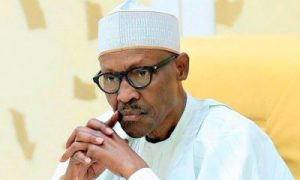 Buhari may be the first to benefit from it, but it is not meant for him. We had proposed this even in the 2005 conference, in which Obasanjo would have benefitted, but it failed because Obasanjo would have had an additional two years over the 8 years of two terms recognised by the constitution. But if this is accepted, Buhari is actually losing two years, not gaining two years because he expects to win the 2019 election that will give him another 4-year mandate. Therefore, if we have 6-year single term, he would actually lose two years. You see, the build up to the 2019 elections is hate-laden. The gladiators by their actions and insinuations spare no weapon in ensuring that their interests are projected and secured, albeit crudely and ruggedly. The risk is that the spectators and supporters will vote on impulse to the detriment of the national interest. This being so, as people will assess the candidates and priorities with their hearts rather than their heads. Practically, four years is not enough for any government to make an impact. The drawback is an unbroken vicious circle of dissatisfaction with leadership and the consequential clamour for change every four years. Recall, that there was a hyped frenzy for the hurried sack of the Jonathan administration in 2015 and the political elites failed at it were to evaluate the strength and competence of Buhari before conscripting public sympathy for Buhari. Part of this problem is caused by the fact that the term is too short. A six-year term will give the president enough space to execute projects and planned programmes.
Buhari may be the first to benefit from it, but it is not meant for him. We had proposed this even in the 2005 conference, in which Obasanjo would have benefitted, but it failed because Obasanjo would have had an additional two years over the 8 years of two terms recognised by the constitution. But if this is accepted, Buhari is actually losing two years, not gaining two years because he expects to win the 2019 election that will give him another 4-year mandate. Therefore, if we have 6-year single term, he would actually lose two years. You see, the build up to the 2019 elections is hate-laden. The gladiators by their actions and insinuations spare no weapon in ensuring that their interests are projected and secured, albeit crudely and ruggedly. The risk is that the spectators and supporters will vote on impulse to the detriment of the national interest. This being so, as people will assess the candidates and priorities with their hearts rather than their heads. Practically, four years is not enough for any government to make an impact. The drawback is an unbroken vicious circle of dissatisfaction with leadership and the consequential clamour for change every four years. Recall, that there was a hyped frenzy for the hurried sack of the Jonathan administration in 2015 and the political elites failed at it were to evaluate the strength and competence of Buhari before conscripting public sympathy for Buhari. Part of this problem is caused by the fact that the term is too short. A six-year term will give the president enough space to execute projects and planned programmes.
The Insight Report
Nigeria Coverage

